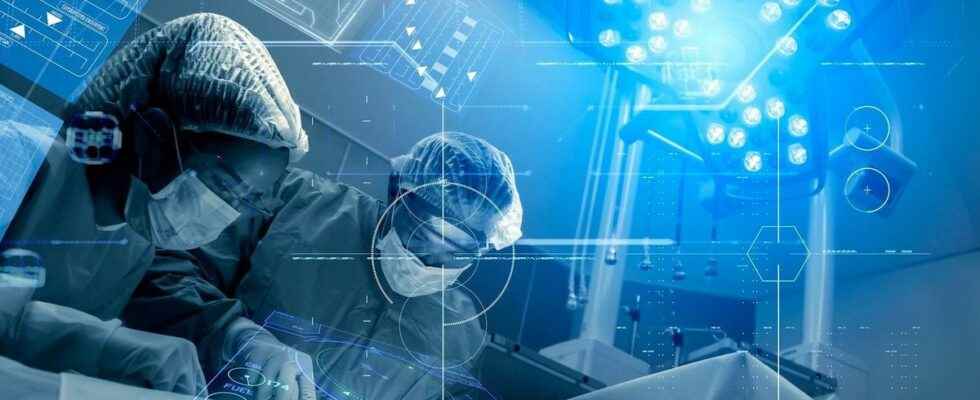Published on
Updated
Reading 2 mins.
The development of artificial intelligence (AI) in health could in the future greatly improve the quality of medical diagnoses, but the use of this technology must remain cautious and imperatively “subject to human control”, plead two French committees of ethics.
Do not deprive yourself of the advantages of AI
“Healthcare teams and patients should not deprive themselves of the advantages provided by these tools, while constantly giving themselves the means to distance themselves from the result provided.“, summarize the National Pilot Committee for Digital Ethics (CNPEN) and the National Advisory Committee for Ethics in Life and Health Sciences (CCNE) in a joint opinion published on Tuesday.
Above all, artificial intelligence applied to medical diagnosis should always be used “primarily with a view to improving care, before organizational, economic or managerial interests“, insist the two committees.
Systems that are not infallible
This opinion, accompanied by sixteen recommendations and seven points of vigilance, is the result of a referral by the Prime Minister in a mission letter of July 15, 2019 relating to “the ethical issues of the use of artificial intelligence (AI) in the field of medical diagnosis“.
“The health and medical sector is particularly affected by the development of artificial intelligence systems“, underlines the opinion.
In terms of benefits, these technologies make it possible, for example, to identify lesions that escape the human eye, to quickly treat cases that are easy to diagnose but repetitive, while freeing up medical time to discuss with the patient.
But AI applied to medical diagnostics also produces “results based on the one hand on approaches which can be probabilistic and on the other hand can be marred by errors“, they warn.
Better evaluate healthcare AI solutions
It also suggests a transformation of the relationship between doctors and patients and opens up many questions – ethical in particular – on the future of health systems, with “heterogeneous or even sometimes contradictory issues, between economic and industrial interests, therapeutic promises for patients, modification of the professional practice of the healthcare personnel concerned and regulatory objectives for the public authorities“, say the two committees.
In this context, “the compliance control of the AI system, which ensures that it is not dangerous and thus authorizes its placing on the market, must be improved, and above all must in the future be accompanied by an assessment (… ) showing not only its absence of harmfulness but also that it effectively contributes to the principle of beneficence“, they plead.
